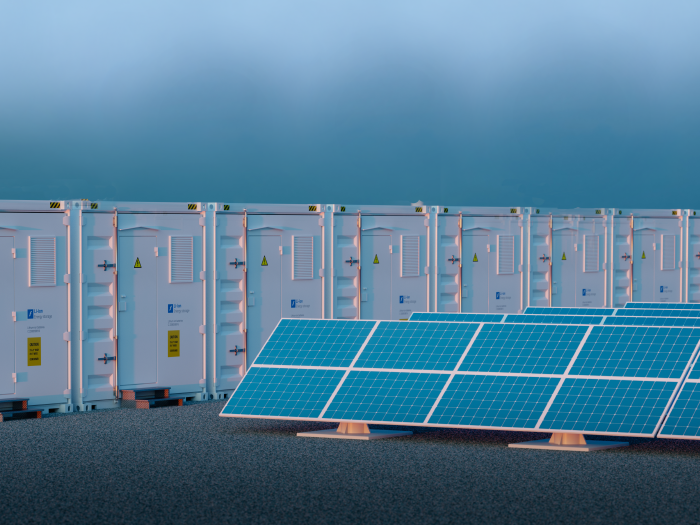Insights
better business decisions
Posted 1 year ago | 5 minute read

Government unveils windfall tax on power generators
The government has set out reforms to ensure businesses in the energy sector who are making extraordinary profits contribute more.
Delivering the Autumn Statement to Parliament on 17 November, Chancellor Jeremy Hunt noted that it comes at a time of “significant economic challenge for the UK and global economy” with the war in Ukraine has contributing to a surge in energy prices, driving high inflation across the world. “So today we deliver a plan to tackle the cost-of-living crisis and rebuild our economy […] We are not alone in facing these problems”, but the UK is responding to global problems with British solutions, he said. Hunt said the plan leads to lower energy bills and a stronger health and education system.
A new, temporary 45% Electricity Generator Levy will take effect on power generators returns from 1 January 2023. For the purposes of the tax, extraordinary returns will be defined as the aggregate revenue that generators make in a period from in-scope generation at an average output price above £75/MWh. The tax will be limited to generators whose in-scope generation output exceeds 100GWh across a period and will only then apply to extraordinary returns exceeding £10M. The tax will apply to extraordinary returns arising from 1 January 2023 and will be legislated for in Spring Finance Bill 2023.
Hunt noted that the structure of our energy market means high oil and gas prices are driving up the cost of otherwise cheap low-carbon electricity in the UK. He confirmed that Energy Profits Levy will be increased by 10 percentage points to 35% and extended to the end of March 2028. The government will consult stakeholders over the coming months as part of a review of the UK’s long-term tax treatment of the North Sea after the Energy Profits Levy ceases, to ensure the regime delivers predictability and certainty, supporting investment, jobs and the country’s energy security.
It was also confirmed that the government will continue to secure the UK’s energy security through delivering new nuclear power, including Sizewell C (subject to final agreement), and the roll-out of cheap, clean renewables, including wind and solar. This will support the government’s commitment to reduce emissions, decarbonise the power system by 2035 (subject to security of supply) and reach net zero by 2050.
From April 2025, electric cars, vans and motorcycles will begin to pay Vehicle Exercise Duty (VED) in the same way as petrol and diesel vehicles. The government will legislate for this measure in Autumn Finance Bill 2022. The government will legislate in Spring Finance Bill 2023 to extend the 100% First Year Allowance for electric vehicle charge points to 31 March 2025 for corporation tax purposes and 5 April 2025 for income tax purposes.
A HM Treasury-led review of the Energy Bill Relief Scheme (EBRS) will be conducted to determine support for non-domestic energy consumers, excluding public sector organisations, beyond 31 March 2023. The government has today published terms of reference for the review, with the findings to be published by 31 December 2022. While the government recognises that some businesses may continue to require support beyond March 2023, Hunt said the overall scale of support the government can offer will be significantly lower and targeted at those most affected to ensure fiscal sustainability and value for money for the taxpayer.
Fulfilling the Budget 2016 commitment to equalise the Climate Change Levy (CCL) main rates on gas and electricity in the UK by 2025, the government will legislate in Spring Finance Bill 2023 to raise the CCL main rate on gas to £0.00775/kWh whilst freezing the CCL main rate on electricity at £0.00775/kWh in 2024-25. The CCL main rate on solid fuels will rise in line with the increase in the CCL main rate on gas to £0.06064/Kg in 2024-25. To help ensure the tax system treats fuels that are used off the gas grid equitably, the government will maintain the CCL main rate on LPG at £0.02175 in 2024-25. The percentage discount on the CCL main rates available through the Climate Change Agreement scheme will be fixed at 92% for electricity and 77% for LPG. The discounts for gas and solid fuels will be adjusted to 89% to produce an RPI increase from 2023-24 into 2024-25.
The government will maintain Carbon Price Support (CPS) rates at a level equivalent to £18 per tonne of carbon dioxide in 2024- 25. The government will engage with industry and conduct a review of the CPS beyond the announced rates.
To support households, the Energy Price Guarantee (EPG) will be maintained through the winter, limiting typical energy bills to £2,500 per year. From April 2023 the EPG will rise to £3,000. With prices forecast to remain elevated throughout next year, this equates to an average of £500 support for households in 2023-24. On top of this, to protect the most vulnerable, in 2023-24 an additional Cost of Living Payment of £900 will be provided to households on means-tested benefits, of £300 to pensioner households, and of £150 to individuals on disability benefits. The government will also raise benefits, including working age benefits and the State Pension, in line with inflation from April 2023, ensuring they increase by over 10%. The government will work with consumer groups and industry to consider the best approach to consumer protection from April 2024, including options such as social tariffs, as part of wider retail market reforms.
Alongside direct support, the government is setting a national ambition to reduce energy consumption from buildings and industry by 15% by 2030. New government funding worth £6B will be made available from 2025 to 2028, in addition to the £6.6B provided in this Parliament. To achieve this target, a new taskforce will be charged with delivering energy efficiency across the economy.







